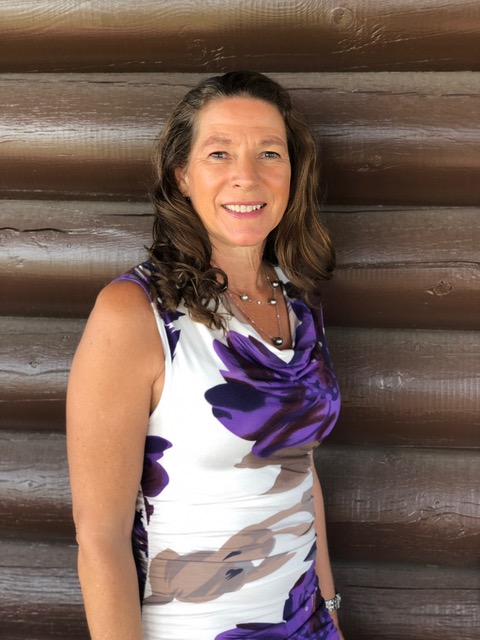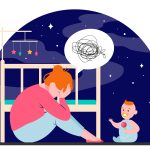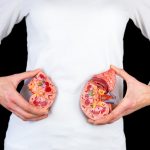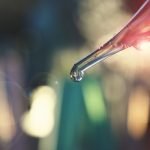JAMES SENSENIG, ND
LETITIA DICK, ND, VNMI
This article joins a series of articles in NDNR that are based on transcripts of the Naturopathic Medicine Institute (NMI)’s Wednesday morning call-in program, The Vital Conversation. The program is hosted by senior Vitalists to enhance the ability of naturopathic physicians to practice as vitalist naturopathic doctors. In this lightly edited transcript (by Emily Kane, ND), the first part of a 2-part conversation that took place on April 12, 2017, Drs Sensenig and senior Vitalist Dr Letitia (“Tish”) Dick discuss why there is such apparent widespread resistance to the obvious potency of the vital force – what we naturopathic physicians, with love and respect, call the Vis.
Dr Sensenig: A conversation about the vital force will never get old. I suggested a thought experiment to a patient the other day: If you get a superficial cut or wound, you could then watch the body do this miraculous thing of repairing the tear and the cut all by itself, without any instruction or even much intervention from you. And in a few days or a few weeks, depending on the situation, it’s nearly impossible to tell that anything bad even happened.
If that’s true when you cut yourself, isn’t it also true when you are diagnosed with diabetes or rheumatoid arthritis or MS? What’s the difference? Why would conventionally trained physicians think the body is suddenly so stupid that it doesn’t know what it’s doing? Why is the allopathic doctor’s job to manage those symptoms rather than to help encourage the conditions that are necessary for that miraculous event we call healing to occur?
Another example of this kind of backwards thinking is around breastfeeding. I recently heard about an article that proposed that breastfeeding is actually not natural and that anybody who breastfeeds is probably an anti-vaxxer.
Dr Dick: That was actually just posted on Facebook 2 hours ago on our Vital Conversation link. It’s quite shocking. It’s from the American Academy of Pediatrics, and it’s telling health professionals to stop prescribing breastfeeding as natural. The author writes, “It can lead parents down the path of alternative medicine, home schooling, and becoming anti-vaccination.”1
Dr Sensenig: That’s so crazy. I had a new patient – a young child, almost a year old – who was brought to me by his single mother after having trouble feeding him. Every time he was fed, he would throw up. This started out with breast milk. Then the mother’s pediatrician urged her to try a cow’s milk formula. Several variations of bovine milk were tried, and the child had no improvement whatsoever.
After a history and exam and some testing, I recommended a goat’s milk formula. Problem solved. I used some remedies and I did some other intervention.
After this problem was solved with the change in formula, she went back to her pediatrician. Of course, the pediatrician wanted to know how the child was doing. She said that the problem was solved, he was feeding well and keeping his food down, his appetite had increased, and he was putting on weight and catching up to where he should be on the growth chart.
When pressed for more details, the mother told the pediatrician that she had seen a naturopathic doctor in Connecticut who put the child on goat’s milk formula. The pediatrician not only freaked out about the goat’s milk, she reported the mother to the state’s Children and Family Division for child abuse!
Suddenly I had an out-of-state investigation on my hands. A case manager, a case worker, and another investigator inquired about my treatment for this child. When I explained the situation, they just said, “That’s what I thought.” And they waved it off, clearly not concerned. But I was told by the investigator that the pediatric community in the United States is being told that goat’s milk constitutes negligence or abuse!
Dr Dick: Where can that possibly come from? I can’t believe that would be considered child abuse when you’re giving your child a nutritional substance that actually stays down.
Dr Sensenig: I think where it might come from is that – as anyone who is listening to us knows or they should know – goat’s milk is not in and of itself substantial enough to be a breast milk substitute; it has to be fortified. Once fortified, you have a very good baby food. So, maybe it’s because straight goat’s milk by itself is inadequate. But any physician prescribing goat’s milk ought to know how to make the needed changes to bring it up to nutritional requirements.
Somebody just texted me while we were talking and asked, “What about a Happy Meal? Is that child abuse?”
Dr Dick: Well, I consider it is, yes. I actually had that conversation with a grandmother. She brought in her grandkids to assess food intolerance and get them on a healthy diet. She looked at me and said, “Well, as a treat, I take my grandkids to McDonalds. You mean I can’t do that anymore?” I said, “No. I’m not saying you can’t do that. It’s just that you’re going to have issues trying to find the right foods for them there. If it’s the playground part that you’re looking for, why don’t you pack a healthy picnic lunch and take them to the park where you can find the same play equipment and have just as much fun? ” I guess she hadn’t even thought of that. People get ingrained in these bad patterns.
Dr Sensenig: I read just recently that the average child in America – I forget what age range it was – spends 5 hours a day on some electronic device with a screen, but only 1 hour a week outdoors. So, I’m not surprised that Grandma didn’t think about going to the park, because what child goes to the park anymore?
Before we get into some more cases, I’d like to mention that a colleague of ours talked to me the other day about a new patient. This patient had also seen another naturopathic doctor in the same city, and mentioned that she would not be going back to that first naturopathic doctor because that doctor had attempted to coerce her into taking statins.
If naturopathic doctors are prescribing statins, SSRIs, prednisone, vaccinations, and antibiotics, then how is that different than conventional medicine? How do those doctors explain what they’re doing? What makes them naturopathic when they’re doing allopathic medicine?
Dr Dick: Somehow, our newer graduates have been led to understand that from the allopathic perspective, these pharmaceuticals are actually considered to be preventive. So they feel in their hearts that they’re doing the right thing, because it’s “preventive care.” If you can lower someone’s cholesterol, hopefully you’re preventing a cardiovascular event in the future, whereas you and I know there’s no relationship between high cholesterol and cardiovascular events.
Unfortunately, the young naturopathic doctors are falling into the medical-model group-think. They assume that’s preventive care, just like they assume mammograms are preventive care and other “preventive” allopathic mandates. In the allopathic model, this thinking makes sense; but that’s not how naturopaths think.
Dr Sensenig: This is a good place to repeat a point made by my guest, Razi Berry, the founder of NDNR, a few weeks ago. NDNR is going to provide some scholarships to our NMI meeting next month in Phoenix, and several will be from Ms Berry personally. Through social media and other projects, Ms Berry is in touch with over 180,000 people who are interested in or looking for naturopathic doctors. People don’t want more allopathic doctors; the last thing this country needs is more allopathic doctors. She was also careful to add that they not only don’t want allopathic doctors, they also don’t want integrative doctors or functional medicine doctors. Her audience is making it loud and clear that they want naturopathic doctors who understand the basic, philosophical, practice-driven thinking that is Vitalism.
I cannot understand why anybody would want to go to a naturopathic medical school to learn allopathic medicine. Why this is happening is multifactorial, but this is what’s happening. If someone wants to do allopathic medicine, why not go to allopathic medical school? Substituting natural stuff for prescription medications is not naturopathy; it’s so-called green-allopathy.
So, let’s keep talking about how to think like a naturopath with some case reviews.
Dr Dick: Two weekends ago, I taught an Advanced Hydrotherapy course in Spokane, where I have my practice. I had 10 wonderful students. Then, this past weekend I taught the Carroll Food Intolerance Method with Dr Jared Zeff. We had 9 doctors taking that course. As these young doctors are in my clinic, I’m listening to what they know and what they don’t know. I asked them what they were looking for in education and how I could bring it forward to them. Some of their responses astounded me. I hadn’t realized some of the gaps in their knowledge or their support base.
That’s the platform for discussing these 2 basic cases now.
I had a patient who is a middle-aged woman with many problems, including sometimes debilitating anxiety. She was running to her medical doctor and then running to me and then running back to her medical doctor and then running back to me… It’s been a journey with her.
She came in after taking proton-pump inhibitors for several months for severe gastritis. The gastritis was caused by other medications. She was taking these meds, really suppressing her stomach function, and feeling more and more terrible. I said, “Listen. You’ve got to come in for a visit. I need to look at your blood under the microscope before I can tell you what’s going on.”
So, we did an intake. I did an acoustic cardiograph on her. I looked at her blood under the microscope, and it was pale, almost white. She was so anemic. I said, “Wait. The only thing that really changed between the last time I saw you and this time was starting these proton-pump inhibitors.” She said, “Yeah. That’s what I’m doing, because the gastritis is so bad.”
I said, “Well, look at your blood. Look at what happened. You’re not absorbing anything because of those drugs. You can’t suppress your stomach acid and expect to have nutrition go into your blood stream, which is what needs to happen to be healthy. You just can’t do that.”
I simply switched her from the PPI to capsules of bitters containing just 2 ingredients: gentian and skullcap.
Dr Sensenig: Here’s a question that comes up often: Did she have any difficulty, symptomatically, in making that switchover? Did she stop the PPI cold-turkey?
Dr Dick: She stopped it cold-turkey, and then switched to the bitters. I did not have to wean her off the PPI. Some people want to wean off a PPI, and that’s fine, but I like it when they just stop it and start the bitters. It works better that way.
She started feeling better immediately. She didn’t have the GERD and reflux. We worked on other things with her. She’s an emotional wreck, and that’s part of her digestive issues – the stress loads she puts on herself is intense. We had to work through that as well.
In 2 months’ time, I looked at her blood again… totally different! It was red again! I showed her the difference between taking that suppressant stomach acid drug and now taking supportive therapy that actually stimulates digestion and tonifies the stomach. What a difference that makes. She was shocked. This is a person who is medically oriented, and it was an awakening point for her to realize that those drugs were actually hurting her. Now we’re in the process of weaning her off other meds, and I’m working with her in these other areas. It’s a journey. Sometimes the “light bulb” doesn’t initially go on with people.
Dr Sensenig: From a philosophical point of view, this is actually Lindlahr 101: build up the blood with good nutrition and herbal therapies. In this case, you wanted to let the digestive system absorb the nutrients she was consuming, which is the way it’s supposed to work in order to bring the blood back to its optimal state. And that, of course, is going to have an impact on everything else and the other symptoms she was complaining about.
Is it really possible that medical doctors, especially gastroenterologists, don’t understand the basic physiology of digestion? Do they not understand that the hydrochloric acid has a genuine, beneficial purpose? This actually brings me to another point. The conventional system of medicine would like everyone to believe that what they’re doing is scientific – whatever they mean by that – and that everybody else is non-scientific and practicing quackery. But think about it: our underlying philosophy IS the science. Because, what we’re looking at here is that the basic physiology of digestion needs to be supported and not interrupted. Stopping the natural process is what passes for “real medicine” in our culture, where we’re handing out these PPIs like candy because they are something that can be marketed.
I’m sure you’ve seen this as well. I’ve seen children, even infants, on PPIs!
Dr Dick: That should be illegal! That should be criminal!
Dr Sensenig: The only reason it’s not criminal is because in the conventional system, they all get together and agree that that’s the standard of care, even though it flies in the face of basic physiology. The legal point being, the medical profession operates in a vacuum, where it is not responsible to, overseen by, or accountable to anybody except each other. They have convinced themselves and regulators and everybody else that nobody can hold them accountable, because nobody knows what it is that they’re doing. So, they have their own little secret cult where they decide together what’s going to pass for treatment, and no one can criticize it because nobody could possibly be at the same level of understanding, or stature, in our culture. In this way, they get away with what would be absolutely criminal interventions in any other profession or walk of life.
Also, think about the patient you just described: an otherwise-intelligent person who doesn’t realize that medicines are harmful.
Dr Dick: Yes. She’s really integrated into the medical world. Yet she comes to me because she wants nutrition and natural care. She doesn’t really understand the full tilt of what natural care means.
I think a lot of people are walking through life like that. They think, well, I can take some herbs, but I’ll also take these drugs. That doesn’t fly in my world. My goal is to get people off the medications as gracefully and quickly as possible.
For some patients, though, their vital force is too weak. They don’t have the vitality to switch cold-turkey to natural health care. So what I end up doing is managing them on their drugs – which I absolutely hate doing – and supporting them as best I can to move them towards a level of wellness where they can wean off the pharmaceuticals. Maybe I can’t get them up to optimum health; maybe I can just barely get them into survival mode. At least they’re better off there than when they were sliding down the slippery slope of more medications.
Dr Sensenig: This brings us to a concept that this patient wasn’t understanding (as most people don’t): that allopathic medicine and naturopathic medicine – or, in other words, the mechanistic and the vitalistic approaches – are working at cross purposes. They are not the same. They are not even in the same ball park.
The difference is simply that in allopathic, conventional, mechanistic medicine, the therapeutic rationale is to suppress the symptom… period. If you have inflammation, they use an anti-inflammatory; if you’re vomiting, they use an anti-emetic. It’s all “anti”: antibiotic, antiphlogistic, antifebrile, anti-, anti-, anti-!
The drug works against the symptom. It suppresses the symptom on the assumption that the symptom is the problem. Whenever you use a medicine allopathically, you are going to create a new set of symptoms by definition, since the underlying problem has not been addressed.
Whereas what naturopathic doctors are doing – and what the patient you just described doesn’t clearly understand yet – is trying to work with that constructive principle, that evolutionary force, that healing intelligence, which we call the Vital Force. True naturopathic doctors are working with that force, not against it by suppressing the symptoms. Again, naturopathic and allopathic interventions are at cross purposes.
Dr Dick: Right. You can’t do both.
Dr Sensenig: What the patient is assuming – and unfortunately, what many people in today’s naturopathy are assuming – is that simply substituting a natural substance for whatever other drug they’re taking means that they’re getting good naturopathic care.
Dr Dick: Yes. But that’s not the whole story. I can relate to what you said about the gastroenterologist scenario. I had a patient a number of years ago with irritable bowel and Crohn’s disease. Her grandmother sent her up from Florida, because they were scheduling her for a colostomy and resection of most of her colon. She was only 18 years old.
I determined that she had a fruit intolerance. In Florida, she was eating fruit all the time. I simply gave her 10 hydrotherapy treatments and bitters to go home with. The bloody diarrhea stopped in 3 days. She basically healed her colon by changing her diet. She actually took her blood photos back to her gastroenterologist, who was really mad because she canceled her surgical appointment.
She said, “Listen, Doc. I’m doing great. I have no more bleeding in my colon after 3 years, and I’m not messing with this. It’s really because I was eating the wrong food.”
The doctor said that diet had nothing to do with her problem, and kicked her out of the clinic. He said he never wanted to see her again.
She called me up in shock. She said, “Well, this is a doctor who specializes in the gut! And he’s saying that diet has nothing to do with my problem! And yet I know it does. What is that all about?”
I told her allopathic doctors are ignorant of the vital force and think their medicine is “true medicine,” which makes them arrogant. She just couldn’t believe it. Here’s this 18-year-old girl trying to show her doctor that she’s okay now because she changed her diet. It’s that simple.
Dr Sensenig: It’s amazing that a medical doctor doesn’t understand that what you put in your body actually affects it. That’s what we’re talking about. But it’s more criminal that the people who hold themselves out as experts in the digestive system don’t know that. Or don’t want to think about it. It’s one thing if someone like a neurologist or orthopedist doesn’t know much about diet, even though they should; but a gastroenterologist should know that food affects the gut! You’d think that kind of “miraculous” improvement we see under the right conditions, when reported to a medical doctor, would make the doctor curious about what helped their patient. They’re confronted with that kind of information, and not only do they not enquire about what happened and get more details, but they get angry and respond with bluster and ego because it challenges their whole belief system. Either they have got to reject it or embrace it. Embracing it means re-evaluating beliefs, and that’s a big step for a lot of people.
Dr Dick: Because they have invested so much time and money in the allopathic camp.
Dr Sensenig: I had an associate here some years ago, who actually had a pre-planned response to those patients who quote their doctor as saying that what’s wrong with them has nothing to do with their diet.
This associate of mine would put down her pen; she would take off her glasses and lay them on the desk; she would sit back in her chair and fold her arms across her chest; and she would say something like, “Let me get this straight. Your doctor is telling you that what you put into your body does not have any effect on your health at all. Am I understanding that correctly?”
Invariably, the patient would say, “Well, now that you say it that way, it is kind of stupid, isn’t it?”
Dr Dick: Yes, it is pretty astounding.
This column, based on the Vital Conversations of the Naturopathic Medicine Institute, will continue in next month’s NDNR.
References:
- Hubbard B. Stop calling breastfeeding ‘natural’—it creates parents opposed to vaccinations. March 30, 2016. What Doctors Don’t Tell you. Available at: https://tinyurl.com/y5qz2s9g. Accessed September 15, 2020.

James Sensenig, ND was a 1978 graduate of NCNM in Portland, OR. For over 40 years he maintained an eclectic practice in Hamden, CT. Over the years, Dr Sensenig held prominent positions in the various naturopathic colleges and the AANP. A champion of classical naturopathic medicine, Dr Sensenig received an Honorary Doctor of Naturopathic Philosophy degree from CCNM, and received numerous awards for his dedication to teaching the principles of naturopathic medicine.

Letitia Dick, ND, VNMI, earned her doctorate in Naturopathic Medicine in 1990 from NCNM. She then completed a 3-year residency with her late father, Dr Harold Dick. After his passing, she continued his classical naturopathic clinic in Spokane, WA, now over 60 years old. Dr Letitia has been in practice 30 years; is past adjunct faculty at Bastyr University; co-founder of the Carroll Institute of Natural Healing (a non-profit, post-graduate institute teaching the healing methods of Dr Otis G. Carroll); author of The Ultimate Text In Constitutional Hydrotherapy: A 100 Year Tradition of Clinical Practice; founder and senior Vitalist of the Naturopathic Medicine Institute; and an international speaker / medical educator.





